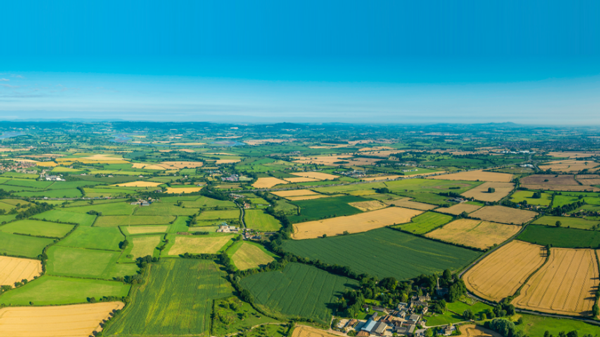Empowering low ILUC-risk biomass value chains for sustainable biofuels and the bioeconomy
- Novel, safe and reliable biomass value chains can be deployed to produce food, feed, biofuels and biomaterials with low risk of generating indirect land use change.
- Low ILU- risk biomass value chains can serve the objectives of the EU Green Deal and feed the bioeconomy.
Florence, 7th December 2020 – Biofuels are a key tool necessary for the decarbonization of transports in the EU and they can be already produced at scale with mature technologies. The responsible production of feedstock for biofuels through well-designed sustainable biomass value chains, can enhance soil health and promote green resilience practices in agriculture, thus serving the objectives of the European Green Deal and fostering the bioeconomy.
BIKE is a new Horizon 2020 project aiming to support the market uptake of safe and reliable biomass value chains, based on improved farming practices, as well as on the cultivation of crops on abandoned and degraded land, which can deliver food, feed, fuels and other raw materials with low risk of generating indirect land use changes (ILUC).
The project supports the implementation of the RED II directive, by providing clear scientific evidence for policymakers and market operators, in addition to a full sustainability assessment and a certification module for specific low ILUC-risk biomass value chains, as well as guidelines and recommendations to promote their large-scale replication.
Low ILUC-risk biofuels as part of the EU’s renewable energy mix
Europe is committed to a greener and decarbonized society; transport contributes to 27% of EU’s greenhouse gas emissions and EU Member States have agreed that 14% of energy for transport will come from renewable energy sources by 2030. Biofuels are essential to reduce transport emissions especially in specific segments such as heavy-duty, long haul, shipping, and aviation, where electrification and other solutions are not available yet. The RED II Directive requires that a minimum of 3.5% of energy in transports comes from advanced biofuels and introduced a cap and a gradual phase out for high ILUC-risk biofuels, intended as those produced from food and feed crops which require significant expansion on land with high carbon stock. At the same time, RED II introduced a preference for low ILUC risk biofuels, defined as those resulting either from crops grown on abandoned or severely degraded land, or obtained through improved farming practices, such as cover cropping.
Yet, to meet the goals of the RED II Directive, policymakers need to be able to objectively identify biofuels produced with “low ILUC-risk” practices, and market actors need to understand which criteria and standards their innovations must follow.
Well-designed value chains serving the EU Green Deal and the bioeconomy
BIKE adopts a value chain approach to analyse four case studies that demonstrate economically, socially, and environmentally sustainable production of low ILUC-risk biofuels.
Two case studies focus on the cultivation of castor and perennial grasses in abandoned and degraded land to produce hydrotreated vegetal oil (HVO) and ethanol respectively. A virtuous exploitation of unused and abandoned land creates new opportunities for people living in rural areas. BIKE addresses their needs by proposing solutions linking circular economy models to sustainable agricultural practices, with potential for replicability across Europe and abroad.
Two other cases focus on agricultural solutions that can deliver both food and additional biomass, while increasing the yield output per unit of land and simultaneously sequestering carbon into the soil. One of these is a climate positive farming system based on the use of Brassica carinata as an oil crop for renewable diesel production, grown in multiannual rotations with traditional food crops. The other is the production of biomethane in decentralized power generation units, using both animal waste and cover crops, grown in rotation with food crops (Biogas Done Right model), and its further conversion into diesel and methanol.
BIKE aims to demonstrate that in addition to serving the objectives of RED II, well-designed biomass value chains are also paramount to achieve the wider objectives of the EU Green Deal, enabling a transition to green resilience, enhancing carbon sequestration in healthier soils and increasing biodiversity. Furthermore, the innovative approaches of these biomass value chains can deliver multiple products including food, feed, energy and materials, thus empowering the bioeconomy and offering economic and social gains for multiple stakeholders, valuable assets for the post COVID-19 recovery of Europe.
BIKE – A multinational European Partnership
BIKE – Biofuels Production at Low ILUC-Risk for European Sustainable Bioeconomy is a coordination and support action started in September 2020 that will continue through August 2023. The project has received funding from the European Union’s Horizon 2020 Research and Innovation Programme under Grant Agreement No. 869192.
Partners: RE-CORD, Renewable Energy Consortium for Research and Demonstration (Italy) (coordinator); CRES – Centre for Renewable Energy Sources and Saving Foundation (Greece); Cerulogy (United Kingdom); CIB – Italian Biogas Consortium (Italy); Eni SpA (IT); Etaflorence (Italy); EXERGIA Energy and Environment Consultants AE (Greece); The Food and Agriculture Organization of the United Nations (Italy); Imperial College of Science and Technology and Medicine (United Kingdom); ISCC System GmbH (Germany); NAIKI AKI – Nemzeti Agrarkutatasi Es Innovacios Kozpont (Hungary); Stitching Wageningen Research (Netherlands); UPM Kymmenene Oyj (Finland).
Download the PDF version of the press release HERE
Contacts
David Chiaramonti (Project Coordinator, RE-CORD) david.chiaramonti@re-cord.org
Twitter: @bike_biofuels
Email: info@bike-biofuels.eu
LinkedIn: @BIKE Biofuels


